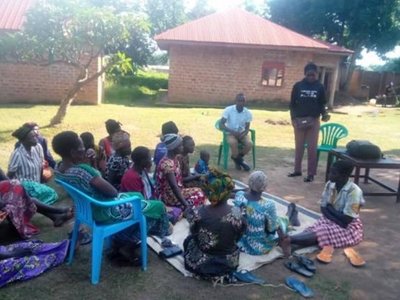

A key milestone during this reporting period was the successful enrolment of the two PhD candidates, Caroline Paparu and Jessiecah Alunyu Apili, into BOKU’s Graduate School. At the same time, Uganda-based PhD students, Sadina Beatrice and Denis Gobo, successfully defended their research proposals at Makerere University and Gulu University respectively, and have been cleared to commence field experiments and data collection.
At the institutional level, Muni University is developing a new MSc curriculum in Food Systems and Natural Resources Governance. Once approved and rolled out, this innovative programme will play a crucial role in building regional capacity for inclusive and sustainable governance of agricultural and natural resources, particularly in fragile and marginalized settings. A standout achievement was the successful pilot of the Community Practice Internship Programme, which provides Bachelor of Agriculture students from Muni University with hands-on experience in refugee-hosting and rural communities. Designed as a co-learning initiative, the programme enables students to apply classroom knowledge to real-world challenges, while working collaboratively with community members. Notably, over 60% of the participants were women, reflecting AMUTI’s strong commitment to gender equity and inclusive participation.
AMUTI organized training on Transdisciplinary Project Management and Monitoring & Evaluation (M&E). This workshop equipped PhD students and institutional staff from Muni University and PALM Corps with essential project management skills.
AMUTI representatives actively participated in the Third Conference on Geographical Science for Resilient Communities, Ecosystems, and Livelihoods Under Global Environmental Change (Gorilla), held in December 2024. PhD candidates Denis Gobo and Beatrice Sadina presented their research on renewable energy interventions and sustainable soil and water management, engaging with the wider scientific community. Caroline Paparu contributed to discussions on migration, human rights, and natural resources governance at Vienna’s international Human Rights Festival. She also featured on OEAD’s podcast Welt im Ohr, addressing Uganda’s asylum policy and the role of science in solving migration-related challenges including natural resource governance.
As the project progresses, AMUTI will intensify field research and participatory interaction with different stakeholders especially within refugee and host communities in Terego and Yumbe districts through community dialogue and citizen science. It will also intensify public engagement through multimedia platforms, disseminate research insights, and support ongoing policy development at Muni University. With a strong foundation of collaboration, shared learning, and community-centered practice, AMUTI is well-positioned to deliver lasting impact in promoting sustainable and inclusive natural resource governance in Uganda.
Read more at the project website of AMUTI | Strengthening transformative capacity of Higher Education Institutions for equitable and resilient governance of natural resources in refugee-host community settings in West Nile, Uganda